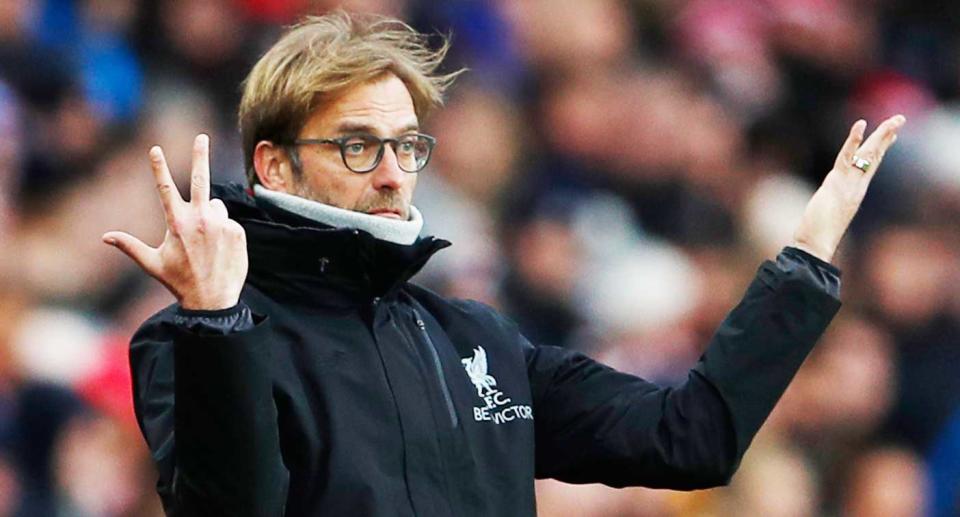Fixture congestion problem apparent again as Liverpool drops points at Sunderland

One team playing its third game in seven days faced another playing its third in eight. The result was a sloppy slog of a game with lots of bad passes and obviously heavy legs. This is the reality of the Premier League’s holiday season schedule.
Liverpool and Sunderland had each played a match on New Year’s Eve, but, less than 48 hours later, they were required to play again. Their strange game would yield a 2-2 tie.
Most of Europe’s leagues take a winter break of a least a week or two. The Bundesliga’s and Eredivisie’s are a month long, even though the weather is no worse than in England – even leaving enough time for them to go on a training camp to someplace sunny. The Premier League, however, does the opposite, jamming a few extra games into the festive days toward the end of the year, namely on Boxing Day, Dec. 27, Dec. 28, Dec. 30, New Year’s Eve, New Year’s Day, Jan. 2 and Jan. 3.
From a business perspective, it’s an understandable practice. For one, the Premier League has the soccer calendar pretty much to itself on those days. And it’s tradition. Plenty of English families orient their Boxing Day around their team’s soccer game. Similarly, it’s become every bit as much a part of the New Year’s celebrations as fireworks and booze.
For the teams, however, it’s a bit of a nightmare. There’s a reason clubs typically play just twice a week, even though there’s every incentive for the domestic and continental leagues to shove more games into the calendar. The players’ bodies just can’t handle more than that. Yet around the end of the year, they’re told to play anyway by the Premier League’s schedule makers.
“We have to,” Manchester United manager Jose Mourinho said, before his team’s match with West Ham United on Monday, when he was asked about rotating his team to accommodate the workload. “There is no point in moaning, complaining or crying, because we have to.”
Liverpool, after all those games in so few days, now won’t have another league match for 13 days – although the gap has, of course, been filled up with games in the FA Cup and EFL Cup. But the Reds failed to beat Sunderland in spite of twice taking the lead, breaking a string of four straight league wins.
Daniel Sturridge got them on the scoreboard with a little dinked header to redirect a bouncing Dejan Lovren shot off a corner.
But Ragnar Klavan brought down Didier N’Dong in Liverpool’s penalty area, and Jermaine Defoe converted for the first of two times in the match.
Simon Mignolet made a handsome save on Defoe 1-on-1. And then at the other end, Vito Mannone did the same to Sturridge.
But then Sadio Mane scored on a corner inadvertently headed on to him by Black Cats defender Papy Djilobodji.
But in the late going, Mane stuck his hand out on a free kick in his own box, committing an obvious handball and handing – sorry, bad pun – Defoe his second goal from the spot.
Jurgen Klopp’s Reds had nobody to blame for their loss but themselves. When you give away two penalties, you’re going to drop points more often than not. But they could nevertheless argue that the burdensome Christmas congestion distorts the title race Liverpool is now very much involved in.
After all, not even the top teams have sufficient depth to be able to swap in replacement players without suffering a drop-off in quality. And while this is an inconvenience suffered by every team, games played by tired teams seem to be determined by luck more often. When natural ability is dulled, the bounces and caroms feel like they become a bigger factor.
Is that fair to the contenders? Hard to say.
But there’s no doubting that among the coaches and players who actually have to figure out how to get through a third game in a week, the practice is deeply unpopular. And rightly so.
Leander Schaerlaeckens is a soccer columnist for Yahoo Sports. Follow him on Twitter @LeanderAlphabet.


